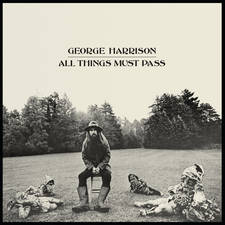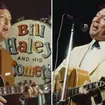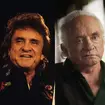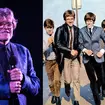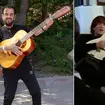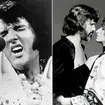AI and music: Billie Eilish, Sheryl Crow and Jon Bon Jovi among list of artists demanding more protection
3 April 2024, 08:48 | Updated: 3 April 2024, 19:00
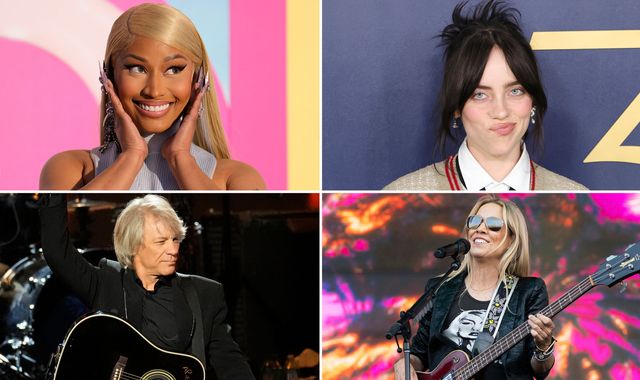
Billie Eilish, Nicki Minaj and Jon Bon Jovi are among hundreds of musicians who have signed an open letter warning developers of artificial intelligence against using the technology to generate music.
The list of around 200 artists, which also includes J Balvin and Sheryl Crow, signed an open letter written by the Artist Rights Alliance, an advocacy group, calling for AI developers, technology companies and digital music services to "cease the use of AI to infringe upon and devalue the rights of human artists".
The alliance, which is run by industry veterans, said in the letter it believes AI has "enormous potential" to advance human creativity in a way that could create new and exciting experiences for fans, but it should be used responsibly.
Its concerns revolve around the invasion of artists' privacy, the use of their identities without their consent, and the use of their music to train AI models.
"Some of the biggest and most powerful companies are, without permission, using our work to train Al models," the letter reads.
"These efforts are directly aimed at replacing the work of human artists with massive quantities of Al-created 'sounds' and 'images' that substantially dilute the royalty pools that are paid out to artists."
The alliance is calling for developers, technology companies and platforms offering music online to pledge they will not develop or deploy AI music-generation tools or content that would "undermine or replace the human artistry of songwriters and artists or deny us fair compensation for our work".
Jen Jacobsen, the alliance's executive director, said: "If there are services and platforms out there who flood the market with AI-generated content, it becomes a sea of noise, honestly, much of which is not human created and therefore it dilutes the royalty pool.
"So you have a lot of music out there, which is not being paid on to human artists. And then the ones who are creating music do not get the royalties that they were due."
Phil Kear, assistant secretary general at the Musicians' Union, said many musicians in the UK are already using AI in different ways. "But I think in terms of generative AI, where it is mass ingestion of copyrighted works that already exist, I think that that can't continue to go on without any payment or any kind of recognition of the original artists and creators," he added.
The letter is the latest development in a wider industry pushback against the use of generative AI where it leads to infringement of copyright and workers' rights.
In March, Tennessee became the first US state to enact legislation intended to protect musicians from having their voices generated by AI for commercial purposes. The act comes into effect at the start of July.
The European Union recently approved the world's first broad set of regulations to govern artificial intelligence, which music industry bodies including CISAC, the composers' association, praised for giving musicians the tools to enforce their rights to their work.
The EU's AI Act will divide the tech into categories of risk, with different requirements for each level.
Read more on Sky News:
Lizzo clarifies what she meant by 'I quit' comments
Taylor Swift now a billionaire - world's wealthiest revealed
The most risky technologies are banned altogether, while companies producing technology with "limited risk" must meet obligations about transparency.
What exactly these obligations are is still unclear.
The act is expected to be implemented in 2025.
The UK has AI guidelines - but they are not legally binding - and it is expected to look closely at the EU's plan for inspiration.
(c) Sky News 2024: AI and music: Billie Eilish, Sheryl Crow and Jon Bon Jovi among list of artists demanding more protection
